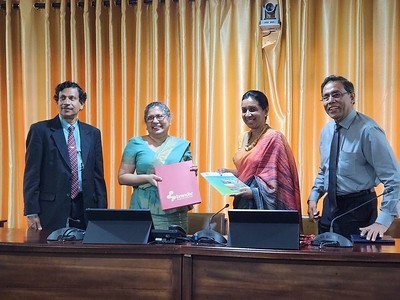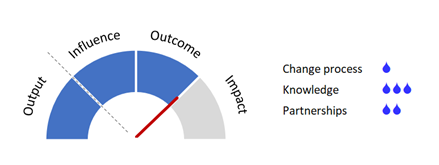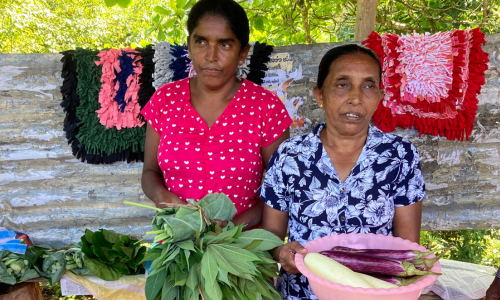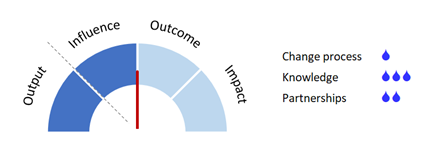Regional impact
Engaging youth in regional water resources management

GWP South Asia is working to lay a strong foundation of youth engagement and build a cohesive and vibrant youth network dedicated to water resources management in the region. Currently, there are numerous national and regional dedicated platforms for mobilising youth for water resources management. However, many of these are ad-hoc, small-scale, and disconnected from each other – therefore, unable to adequately leverage meaningful participation.
In April 2023, GWP South Asia launched the Youth and Young Water Professionals Platform, with members from all six countries in the region. Through the platform, youth are encouraged to engage actively with various stakeholders, respond to challenges and opportunities, and become pioneers in sharing information, data, and outputs with the goal of knowledge exchange, training, and improved educational and professional prospects related to sustainable water management.
GWP and the platform, in collaboration with Brandix Apparel Limited, then organised the South Asia Youth Water Challenge 2023. The award provided an opportunity to empower young people to create significant impact and change. Over 100 youth from across South Asia entered the challenge with innovations that could catalyse the advancement of Sustainable Development Goal 6. The winning proposal by the Electronics Design and Innovation Centre Team of the University of Kelaniya was for an automatic rainwater harvesting smart system with real-time water quality monitoring capabilities. The Team was awarded a grant of US$2,500 to implement this project.

Addressing barriers to climate-resilient water management in Nepal
Nepal is one of the top 10 countries most affected by climate change, which exacerbates floods and landslides and causes unpredictable changes to monsoon patterns. Fortunately, the country is responding. In March 2024, the Global Water Leadership in a Changing Climate Programme (GWL) in Nepal marked its closure after three years with the launch of the Response Strategy for Water Resources Management and WASH Services for Nepal by Hon. Shakti Bahadur Basnet, Nepal’s Minister of Energy, Water Resources and Irrigation.
GWL was led by the Government of Nepal and supported by GWP Nepal alongside other partners. GWL supported the strategy formulation through working groups and multistakeholder consultations, promoting out-of-the-box thinking to generate novel ideas and concepts. The strategy and its 29 prioritised activities were developed under the leadership and guidance of a 17-member Programme Coordination Committee representing the Government of Nepal, including GWP Nepal.
Some outcomes of the response strategy have already contributed to improving Nepal’s Irrigation Policy, WASH Policy, and River and Water-Induced Disaster Management Policy, all of which are critical to the country’s climate resilience. The presence of this plan of action, accompanied by the financial plan, will now allow Nepal to leverage access to international climate financing that is needed to bring systematic change in addressing climate change as a nation, at the scale and pace required.

Empowering women to ensure household food security in Sri Lanka
Sri Lanka has one of the highest rates of malnourished children in the world – and the numbers are expected to rise. Poverty, intensified by hyperinflation, water insecurity, and rising food costs, is particularly impacting the daily waged labourers of tea and rubber estates in central highlands of the country..

GWP Sri Lanka has been working to secure WASH facilities in schools in the tea estate sector of the country’s central highlands for more than a decade. During the COVID-19 pandemic, children were dropping out of school to support their parents with casual labour, and there were fears girls were being forced into early marriage.
To combat this issue, GWP Sri Lanka and partners, NetWwater, Lian’s Club, and others – came together to empower the women of Mavikumbura-South to manage food security through the Gonadika Community Farm. While this partnership was initially founded to improve sanitation and WASH in schools, water remains an essential element of its activities. By improving water security and allowing enough water for agriculture, the community of 40 families can improve food security and incomes, therefore reducing the school drop-out and increase attendance of estate children.
In 2023, GWP Sri Lanka facilitated training sessions on financial literacy for community leaders and knowledge sharing on climate-smart home gardening. These will help the community navigate the financial crisis that they, and Sri Lanka as a whole, are currently facing.

